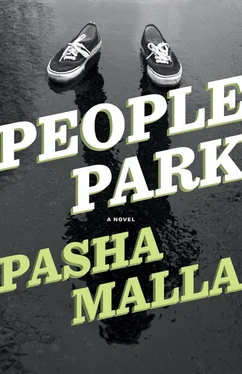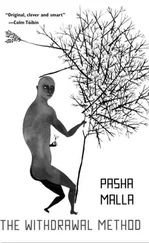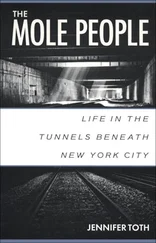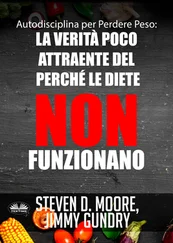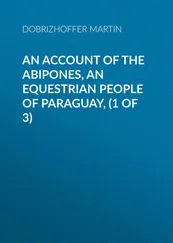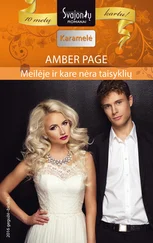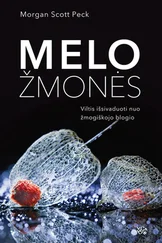We are wasting valuable time , said Gip. How many times do I have to tell you?
I know, champ. I know. But know what? When you’re old like me you’re going to look back on this and think, gee, it was so great to have that time with my family, so great to spend time with my parents now they’re dead.
Dad? said Elsie-Anne.
Ha, no, I’m not dead yet, Annie, don’t you worry.
Not. . yet, she whispered.
Kellogg ran at Pearl, a plastic bag from the Museum’s giftshop swinging in his hand, and hugged her clumsily.Pearly, he said, I got you a present! He produced a sweatshirt. Islandwear! You’re a local, figured you should dress the part.
No backpack, she said. No meds.
Aren’t you going to put it on?
Maybe later.
Okay. Kellogg took it from her, held it up to his wife’s chest, his own. But hey, mind if I wear it? Getting a little chilly out here with the sun going down and all, is all.
Sure.
Kellogg disappeared inside the shirt, struggled to find the arms, popped his head out the top, and announced, Well hello again, Family Poole!
Gip came down the steps. Mummy, did you find my book?
I —
Well obviously not, since you don’t have it. How am I supposed to take over for Raven if I don’t even know what Situation this is? You promised , Mummy, that you were going to come back with my book, I went through that whole stupid Museum with him — he jabbed a thumb at his father — and the Sand City model isn’t even working , it’s just covered in fog like outside, and here you are without my book even though I thought you knew what you were doing, but look, you haven’t even done your job and —
Pearl’s open palm connected with a sharp smack. The air seemed to fall apart: it was as though a blade had sliced down and guillotined the space between her and the rest of her family. Pearl’s hand shrank to her side, its imprint reddened on Gip’s cheek, the Pooles tableau’d: mother and father and son, Elsie-Anne talked to her purse on the steps.
Gip didn’t move, didn’t make a sound.
Pearl buried her face in her hands, then gathered Gip in her arms. Kellogg checked up and down Parkside West: a family watched from the opposite side of the street. He stepped into their sightline, turned his back, widened his stance. This was private.
I’m sorry, Pearl said, stroking Gip’s cheek. I’m feeling a little. . off. I shouldn’t have —
Well no kidding, Pearly, said Kellogg. I mean, sheesh.
Gip whimpered. Pearl held him close.
From the steps: Did Mummy hit Stuppa?
Kellogg wheeled. Hey! No way, Annie. The Pooles don’t hit our kids. Right?
But, Dad, I —
Nope! Gip had a bee on his cheek is all. Can’t ever be too careful! Right, Pearly?
Kellogg smiled broadly, eyes blazing. And watching his wife and son, their arms around each other, he felt certain that it was not Gip who needed holding. If released, Pearl seemed ready to collapse. And so Kellogg joined the huddle, wrapped and squeezed them tight. Everything’s going to be okay, he whispered. I just love you guys so much.

THE HAND TAPPED the passengerside window with a fingernail.
Right, said one of the kids from the backseat.
Debbie killed the lights and turned onto Knock Street, jostling over the cobblestones. The streetlights were on here, it was disorienting after piloting through the murk of UOT.
Stop here, said the other kid.
She parked at the entrance to Knock Street Station. Across the road, the Island Flat Company flagship restaurant, a two-storey complex that occupied half the block, glowed in twin golden stripes from each of its floors. High above the IFC logo flashed, one letter to the next, over a flatlike obelisk. At the edge of forever buzzed beneath in orange squiggles.
Beside it the NFLM Temple looked abandoned, the flickering bulbs on either side of the S I A I O N sign seemed the faint lifesigns of a comatose patient. Debbie laughed: the windows had been blackedup.
And another lot north was the Citywagon Depot, a grid of three dozen vehicles, identical and silver and sleek. Each car was plugged into consoles upon which greenly blinked the time: 9:00. Though it wasn’t nine.
Okay, said Debbie, here we are. I don’t know how you expect to get into the trunks —
One of the twins, halfway out of the car, said, Let us worry about that, and the other said, Leave the engine running, and they followed the Hand into the Depot, leaving their weapons in the backseat.
In the IFC’s upper-floor window, two men in NFLM gear were sitting down with trays of flats. There was something familiar about them: one presided over his food with a simian sort of hunch, his partner, lanky and blond-bearded, demurely tucked a napkin into his collar. The stockier man angled his head, jaws unhinged, to stuff a flat halfway into his mouth, while the other deposited unwanted toppings into a napkin and inspected the offal as a virologist might some rare and curious disease. Then he spoke, and though his lips blubbed silently, each s whistled between his whiskers as: Θ.
Tragedy! Havoc! Snitches!
In shame and dismay Debbie laid her forehead on the steering wheel, playing the previous two weeks over in her mind: the two men’s sudden materialization, no one had ever heard of them before, their all-round shiftiness, such a performance of rage and militancy — and so it was. But what of Pop, his restribution planifications of the night before alongside these two infiltrators? Debbie had abandoned him. She felt sick.
A Citywagon’s window exploded in the Depot. An alarm wailed and blared, the car’s trunk flapped open, the shadows shivered with movement.
Up in the second-floor window of the IFC, Havoc — or whoever he was — cocked an ear like a tracker. Another window smashed, another trunk opened, another alarm joined the first. The other man stood, wiping his mouth with his sleeve, moved to the window, cupped his hands to the glass — and Debbie slid down in her seat, out of view.
From the Depot: the puff and tinkle of another window knocked in, a trunk opening. The night air throbbed with honks and sirens. Debbie peeked out: the shadows seemed to fracture and shift. Meanwhile, the snitches had disappeared from the IFC’s upper window. What purpose did they serve the NFLM — undercover operatives, provocateurs? They’d comprised a third of the entire Movement , nearly doubled its size! Spies? Even the idea seemed absurd.
At the restaurant’s front doors the Helpers were accosted by the hostess and held up while the one who called himself Tragedy went digging through his windbreaker. Havoc moved to the window, gazed out, Debbie ducked.
A voice cried, Calum’s not in this one either! In the sideview mirror Debbie watched the Helpers leave the restaurant and creep across the Temple’s front yard, the shorter man, scuttling buglike alongside his gangly companion, produced a walkie-talkie: Pea and Dack here, he shouted. It’s them!
At this the Hand rose out of the shadows, illuminated by a streetlight, with the vexed alert posture of a startled animal.
What happened next Debbie could only process in fragments: a surge of adrenaline — the engine roared — Havoc and Tragedy frozen in her headlights — the car swerved — two men diving out of its path — the Hand and the twins piling into the backseat — Havoc and Tragedy getting to their feet in the rearview — a screech of tires — kids’ voices: Where are we going? Where are you taking us? — and maybe Debbie said something, maybe she didn’t. Then she was swerving north onto F, over Lowell Canal, leaving behind the lighted streets of LOT, swallowed into the sheer slick darkness of the Zone.
Читать дальше
